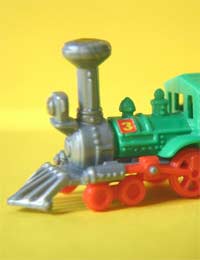Advantage of Plastic Toys Over Other Materials

Plastic toys do seem to have a bad press at times, but they are probably unfairly criticised. Although there have been scares about chemicals in toys in the past, the strict safety regulations that govern the import and sale of children’s toys mean that any plastic toys you might pick up off of the shelf in this day and age will be thoroughly tested, safe and reliable.
So Why Buy Plastic Toys In The First Place?
Wooden toys are gorgeous and gaining in popularity, but being a natural substance means that wood is always prone to rotting if not looked after properly, and of course can split and splinter, leaving children at risk from injury. Plastic toys are far more durable and can be bent, twisted and quite often stamped on before any serious damage happens to them. Of course, it’s always best to instill a certain amount of respect for toys in your children, but at least plastic toys can stand up to a bit of rough play.
Another bonus of plastic toys over some materials, such as wood, are that plastic toys are washable toys. If the little darlings come in from the garden covered in mud or other delights, you can simply wipe their toys clean while you dunk them in the bath to clean up. There’s no need, as with fabric toys, to even put them through a wash in the machine, all it takes is a damp cloth and the toys are as good as new.
This makes plastic toys even more long lasting, but of course minimises the risk of transferring dirt and germs from washable toys onto your children’s hands, or around the house!
Toy Safety -What About The Risks of Chemicals in Toys?
Although there have been some concerns in the past about plastic toys and chemicals in toys, the main concern was about the use of chemicals called phthalates. Phthalates are a group of chemicals used as plasticisers in many products, including cosmetics, but have been used in toys in the past.
Phthalates have been linked in the past to reproductive system disorders as well as an increased risk of asthma and cancer. For these reasons, a toy safety directive by the EU banned the use of phthalates in any plastic toys that were likely to be chewed or sucked on by small children, although the plastics industry vehemently denied that there was any discernible risk.
Since this directive has been in place, phthalates have been banned in any toy or part of a toy which can enter a child’s mouth cavity “in such a way that a substantive area of plastic material may be chewed and sucked with a high degree of comfort and ease giving rise to prolonged periods of mouthing.”
So any plastic toy that you give to your child should now be phthalate-free, especially if it’s designed for the under threes.Plastic toys have long been a favourite among children, who love them for their ability to bounce back, and withstand plenty of abuse – while parents love them for their toy safety, the fact that they are washable toys, and that they provide hours of fun...


Re: Toy Safety Standards in the UK
Selling handmade knitted, crocheted and fabric toys for charity. How do I find out information re the chemical compounds in the…
Re: Toy Safety Standards in the UK
I have bought some small packaging, shipping boxes from Amazon and decorated them with stickers and other eye catching…
Re: Toy Safety Standards in the UK
Hello. Can you tell me if I need a test for a certified safe wooden doll that has been painted with acrylic paint and has a…
Re: Second Hand Toys: What Are my Rights?
Recently sold (reluctantly) a transformer listed on a Facebook transformers selling page for £35, listed price was…
Re: Toy Safety Standards in the UK
Robie szydelkowe misie, laliki, z wlóczki sprzedawanej na rynku( yarnart jeans itp). Co powinnam zrobic aby móc je sprzedawac…
Re: Toy Safety: What Does the Law Say?
idk
Re: Toy Safety Standards in the UK
Hey, I am hoping to sell some wooden stands to go along side some artwork im selling for children 3+ they are meant to be played…
Re: Second Hand Toys: What Are my Rights?
Please advise...I plan to set up a hoopla stall at summer fete can I give second hand soft plushtoys as prizes? I will…
Re: Toy Safety Standards in the UK
Hi i have currently made up some educational busy books which are made up of laminated paper sheets with velcro laminated…
Re: Toy Safety Standards in the UK
Hi, I am thinking of starting a business selling sensory kits for over 3’s. They would contain coloured rice, chickpea, lentils…